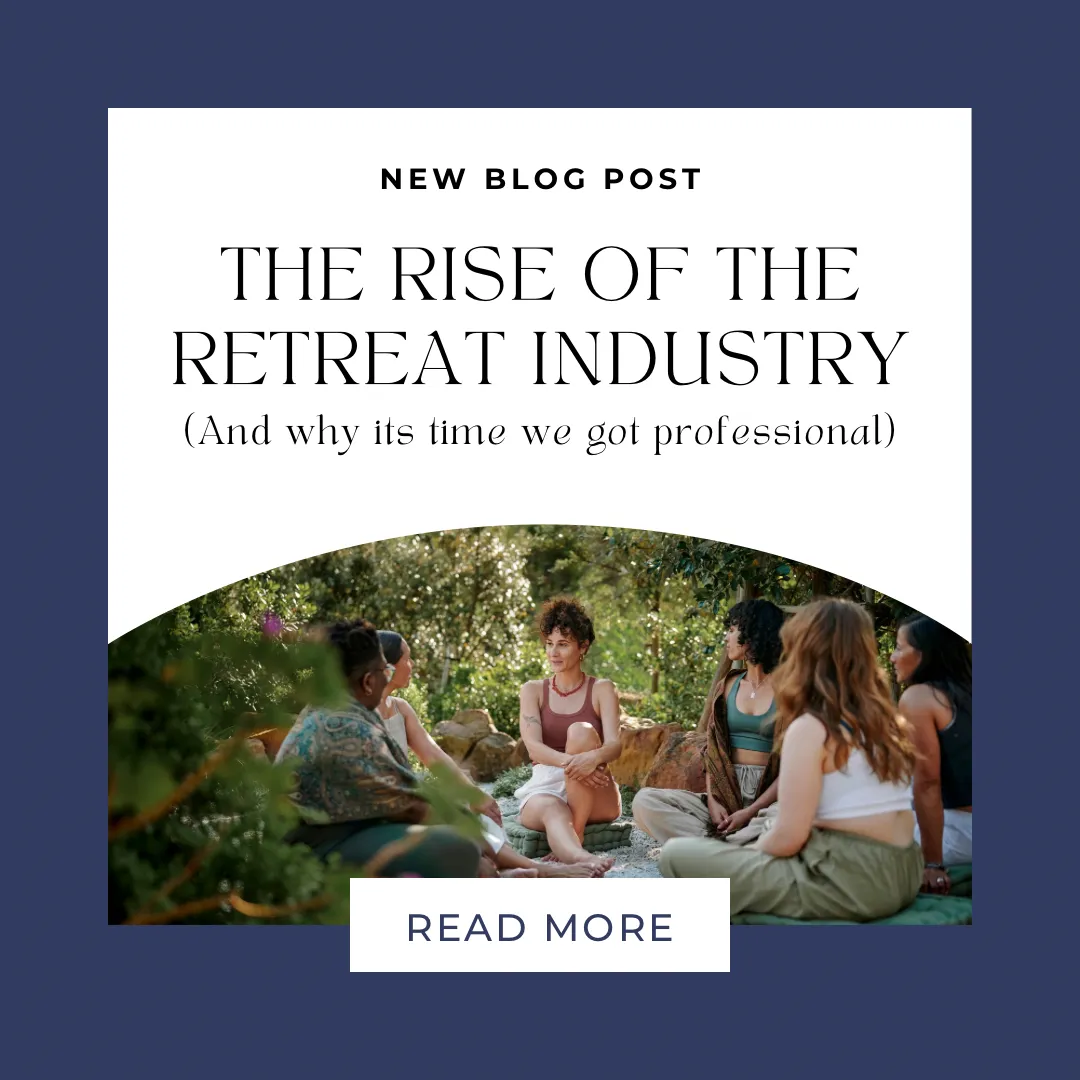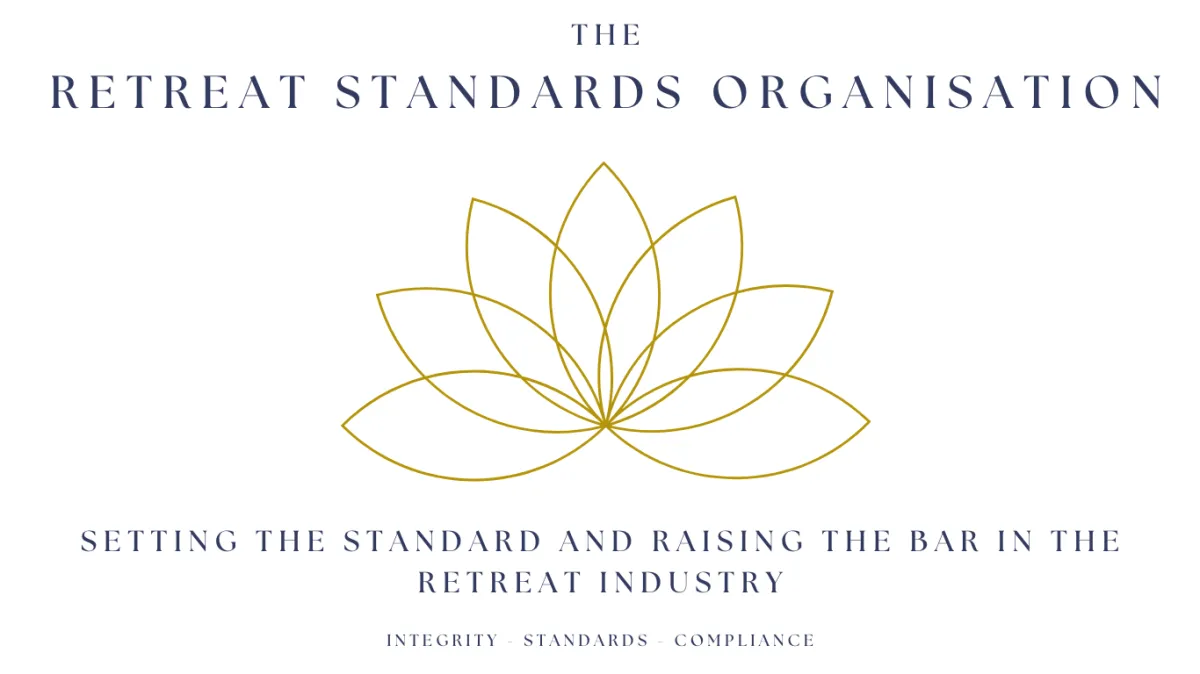Blog

The Rise of the Retreat Industry (And Why It’s Time We Got Professional)
Over the past few years, the retreat industry has gone from something a handful of yoga teachers did “on the side” to a booming, multi-billion-pound sector. What was once seen as a luxury add-on has now become a core offer for wellness professionals, coaches, and even corporate teams.
Scroll through Instagram on any given Sunday and you’ll spot retreats in Bali, breathwork in Ibiza, or sound baths in a shepherd’s hut in the Lakes. We’ve entered the era of the retreat gold rush and while the surge in demand is brilliant for business, it’s also highlighted one rather large problem:
Very few people know what they’re doing from a professional, legal, or safety perspective.
And we’re not saying that to be critical. It’s just a fact. No one taught you how to risk assess a sunrise hike or write safeguarding procedures for a group of strangers who met in a WhatsApp group and are now sharing a hot tub. But at RSO, we think it’s time to change that.
Why now?
Retreats are no longer fringe. They’re not “a bit of a side hustle” or a “passion project.” They are revenue-generating, reputation-building, life-changing experiences. They’re also legally classed as holidays in many cases which means they fall under the same rules as travel agents and tour operators.
Yes, even if it’s just two nights and you made the breakfast yourself.
The more the industry grows, the more visible these events become to guests, to insurers, and yes, to regulators. And as more people get in the game, the risks increase. We’ve seen everything from overbooked villas with no alternative accommodation plans, to group leaders running activities they’re not qualified to lead. All avoidable, all fixable but only if we start taking the industry seriously.
Being professional doesn’t mean losing personality
We’re not calling for clipboards, walkie-talkies and a corporate handbooks on “retreat synergy.” What we are calling for is basic standards:
Insurance that actually covers what you’re doing and complies with legal requirements.
Terms & conditions that protect both host and guest
Risk assessments that go beyond “don’t trip over the yoga mat”
Qualified facilitators with a clear role and remit
A safeguarding plan in place
This isn’t red tape for the sake of it. It’s about protecting people: you, your guests, and your business. It’s also about building trust in the industry. Guests are paying good money and trusting you with their safety, their time, and often their emotional wellbeing. Professionalism should be a minimum standard, not a bonus feature.
The wellness wild west can’t last forever.
We get that the appeal of the retreat world is partly the freedom it brings. No boss, no rules, no HR. But with that freedom comes responsibility and the “wild west” approach to running retreats just isn’t sustainable (or legal)
We’re already seeing insurance companies tightening up their policies. Some facilitators are walking away from collaborations due to lack of clarity or protection. And more than one host has quietly cancelled a retreat after realising they’d accidentally become a tour operator without the correct cover.
It doesn’t need to be scary. You don’t need to become a legal expert overnight. But you do need to know the basics and to get help where you need it. That’s why RSO exists. We’ve created the standards, policies and accreditation that make it easy for hosts to run retreats properly without losing their creativity, individuality or integrity.
The future of retreats is credible, safe, and sustainable
If we want this industry to last, we need to get the foundations right. That means hosts who understand their responsibilities, guests who know what to expect, and a set of shared standards that help everyone feel more confident about the experience they’re offering or attending.
The rise of the retreat industry is something to celebrate but with growth comes the opportunity (and the obligation) to do better. We’re here for the long game. We hope you are too.

TESTIMONIALS

John Doe
Lorem ipsum dolor sit amet, consectetur adipiscing elit. Fusce elementummi vitae risus luctus rhoncus. Morbi porttitor diam tincidunt leo vestibulum, tempus suscipit orcihendrerit. Morbi id tincidunt dui.
Nullam mollis turpis in justo semper, sit amet iaculis quam sodales.

John Doe
Lorem ipsum dolor sit amet, consectetur adipiscing elit. Fusce elementummi vitae risus luctus rhoncus. Morbi porttitor diam tincidunt leo vestibulum, tempus suscipit orcihendrerit. Morbi id tincidunt dui. Nullam mollis turpis in justo semper, sit amet iaculis quam sodales.

John Doe
Lorem ipsum dolor sit amet, consectetur adipiscing elit. Fusce elementummi vitae risus luctus rhoncus. Morbi porttitor diam tincidunt leo vestibulum, tempus suscipit orcihendrerit. Morbi id tincidunt dui. Nullam mollis turpis in justo semper, sit amet iaculis quam sodales.
